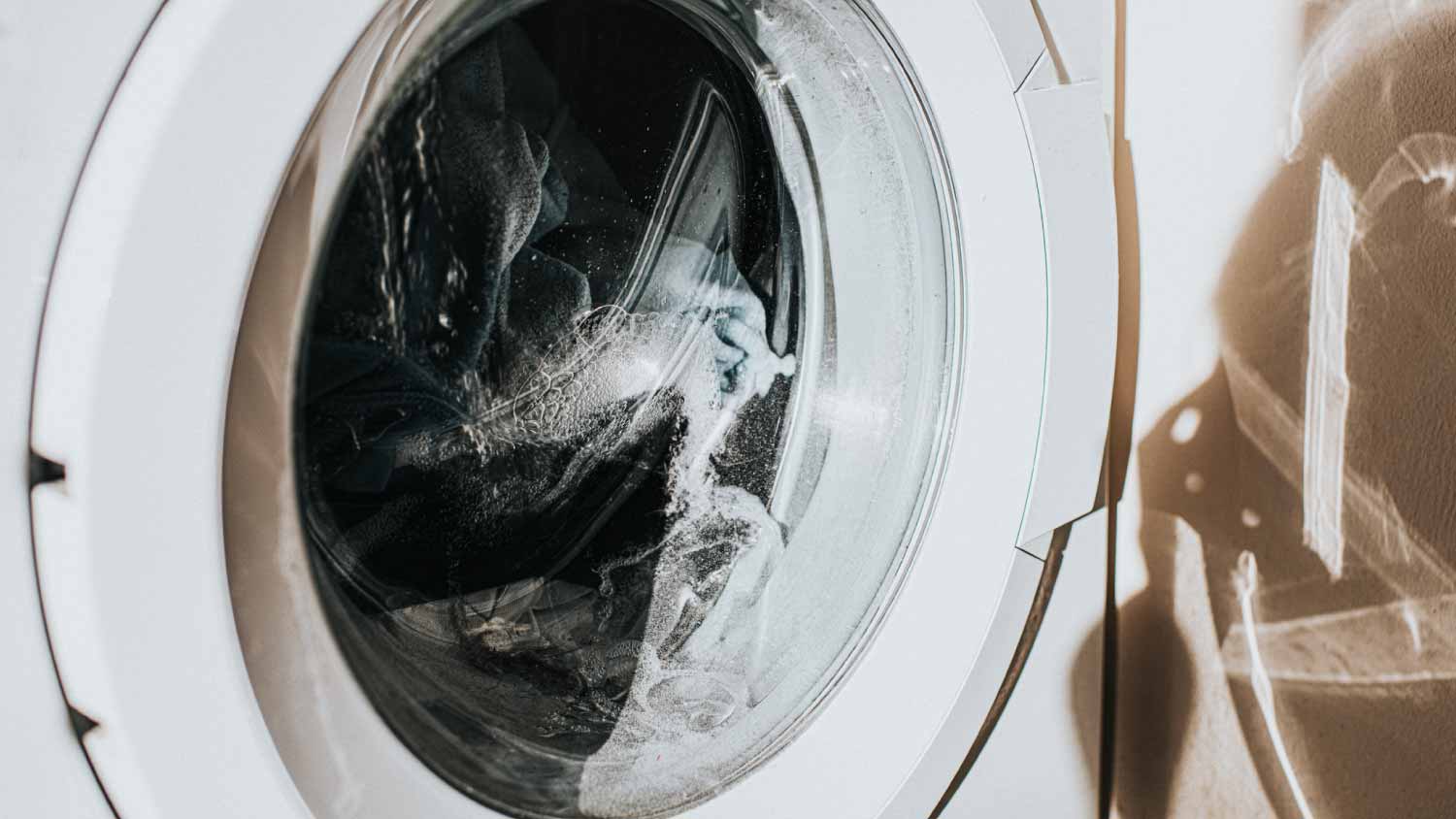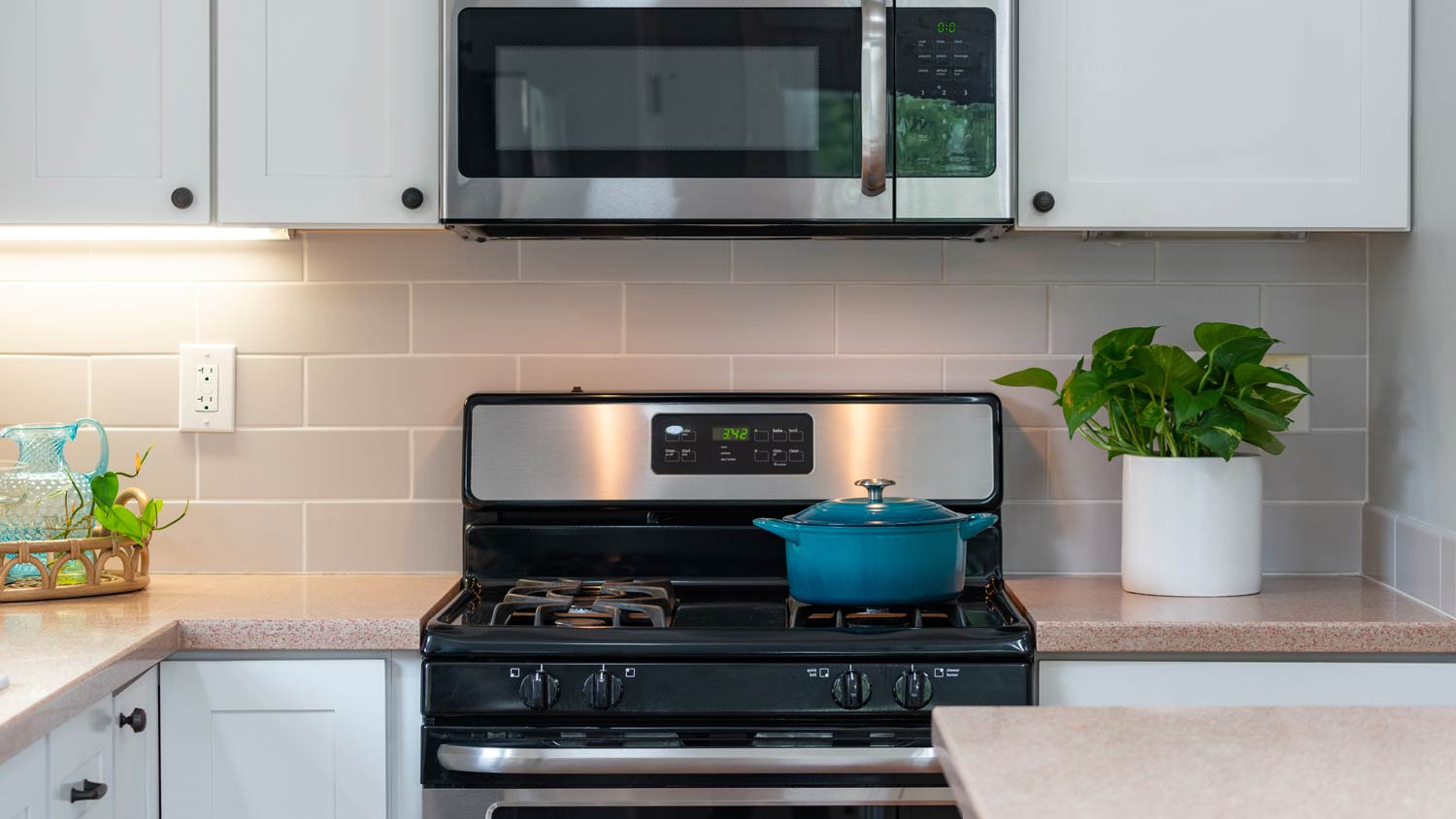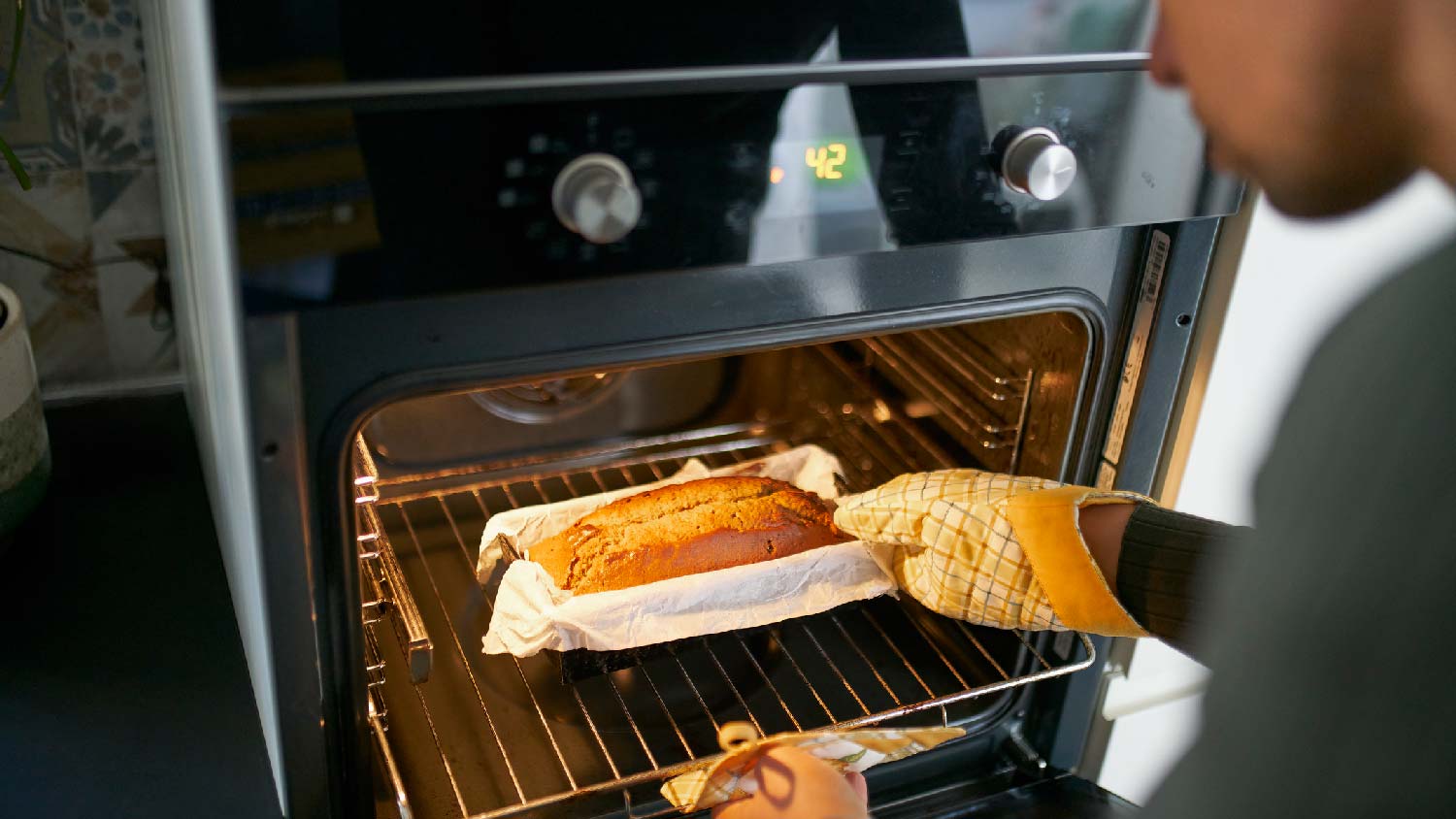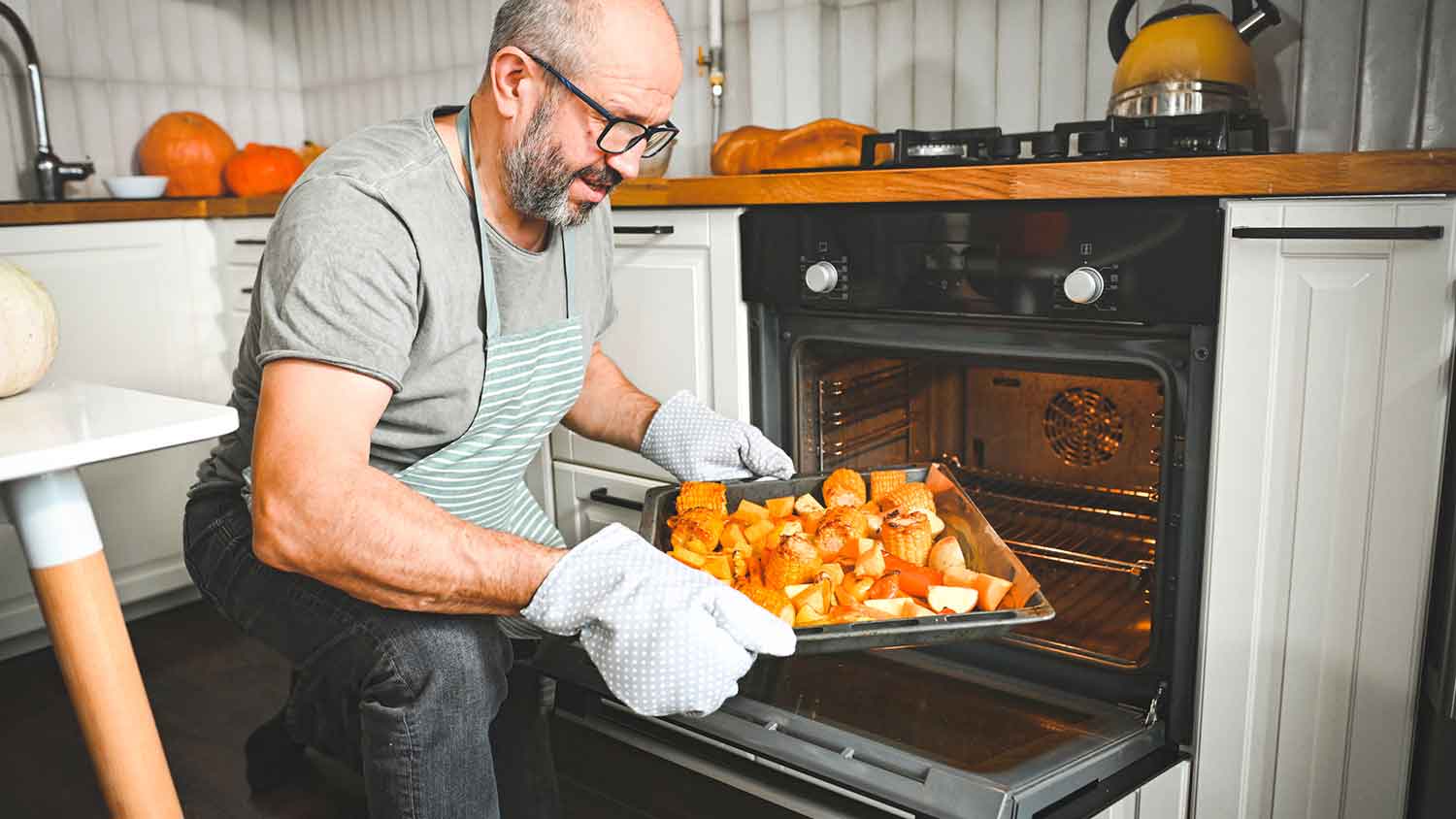Should I Repair or Replace My Appliances?
To repair or replace—that is the question


If the cost to repair is less than half the cost of a replacement, consider a repair.
Appliances that are 10 years old or older are candidates for replacement.
Get an accurate repair cost estimate before making a decision.
When considering the replacement cost, don’t forget about installation costs.
We've all had that feeling of dread when an aging appliance suddenly stops working. Perhaps you're unsure whether to repair or replace it. The decision depends on a few factors, including your appliance's age, the repair estimate, and how complex of a fix it'll be. Learn when you should repair an appliance—and when it's time to upgrade to a newer model.
Is It Worth It to Repair Appliances?
It’s often worth it to repair an appliance, but you have to take into account the repair costs, age and condition of the unit, and more. Here’s when to replace or repair an appliance:
| Repair | Replace |
|---|---|
| The cost of the repair is less than 50% of a new appliance. | The cost of the repair is 50% or more of a new appliance. |
| Your appliance is still under warranty. | Your appliance is roughly 10 years old or more. |
| The appliance was operating perfectly before breaking down. | The appliance was struggling to perform in areas unrelated to the reason for the repair. |
| Scarcity caused a major increase in the cost of a new appliance. | Technology and design advancements drove down the cost of a new appliance. |
| Your current appliance delivers good energy efficiency already. | You would like a new appliance to save on energy. |
| Your current appliance has all the features you want. | You need or want a feature that’s only available in a new appliance. |
| You don’t want to send your appliance to the landfill just yet. | You believe you can donate your old appliance to someone in need. |
| The upfront cost of a new appliance simply doesn’t fit in your budget right now. | You have a bonus at work or a tax refund available to spend on a new appliance. |
Factors to Consider for Repairing or Replacing Appliances
We put together some specific things to think about when deciding whether to repair or replace your appliance.
Cost: When you’re considering the cost of a replacement appliance, do some research. If you haven’t bought a particular appliance in several years, you may not know the current costs for new models. Appliances cost an average of $350 to $8,000 each, but if repairs cost more than 50% of the cost of a new appliance, it may be worth it to buy new.
Budget: If you want a new appliance, but you don’t have the cost in your budget just yet, you should strongly consider repairing it. Your repair could gain several months or a couple of years of performance out of the aging appliance, giving you time to save up for a replacement.
Warranties: If your malfunctioning appliance is still under warranty or extended warranty, you should always repair it, even if you have to pay a trip charge or a small service fee.
Recalls: If the manufacturer issues a recall on your appliance, the repair should be free. To find out if your appliance has been recalled, visit Recalls.gov or the Consumer Product Safety Commission (CPSC) website.
Age of appliance: If the appliance’s age is close to the range of its useful life span, you should strongly consider a replacement. An aging appliance is likely to continue to need repairs.
Energy efficiency: Newer appliances are almost always more energy efficient than models introduced even a few years ago. If energy efficiency is extremely important to you, you should consider replacement.
Style: Perhaps you believe the appliance that needs repair is out of date with the rest of your kitchen decor. You certainly could purchase a new appliance to update the look, or you could refinish the old appliance after repairing it. In this case, combine the cost of refinishing and repairing the appliance when comparing it to the cost to replace it.
How Long Do Appliances Last?
Knowing the typical useful life span for your home’s appliances can be helpful in deciding whether to repair or replace appliances. Here’s how long common household appliances last.
| Appliance | Average Lifespan (In Years) |
|---|---|
| Dryer | 10–13 |
| Washing machine | 10–14 |
| Dishwasher | 10–15 |
| Freezer | 10–20 |
| Garbage disposal | 5–10 |
| Refrigerator | 10–15 |
| Stove or range | 10–15 |
| Water heater | 8–12 |
| Water softener | 10–25 |
Your range could be longer if you follow some tips for extending the lifespan of the appliance. Perhaps you purchased a high-end brand name when the appliance was new, which should give it a longer lifespan than a bargain brand. You often receive a longer useful life span than average if you routinely perform maintenance on the appliance.
Cost to Repair Appliances vs. Cost to Replace Appliances
The most basic rule related to cost when deciding whether to repair or replace your appliance is the “50% rule.” If the cost of the repair will be 50% or more of the cost of a replacement appliance, go with replacement. If it’s less than 50%, it’s often best to go with repair.
However, it’s not always cut and dry. Your appliance’s age and condition play a big role in your decision.
"When it comes to appliances, you have to consider the extent of the issue. If it is minor problems or something that simply requires maintenance, then it might be more cost-effective to do a repair. If the failure is a major component of the appliance, then it will likely be easier and more affordable in the long run to just replace it and get peace of mind."
— Josh Rudin, Owner at ASAP Restoration LLC, Tempe, AZ
When to Repair Appliances
Beyond the 50% rule, multiple scenarios exist where you should consider repairing the appliance instead of replacing it.
Newer Unit That’s Under Warranty
When your appliance is under warranty, scheduling a repair is always better. The manufacturer should pay for the repair of an appliance under warranty. If it’s under warranty, it’s probably still well within its useful life span.
You’re Receiving Good Performance
If the appliance has been performing well until suddenly needing repair, the unit likely still has a lot of life left in it. The repair should bring the appliance back to optimal performance.
You Want to Make an Eco-Friendly Decision
If your current appliance gives you good energy efficiency, and if you don’t want to see it end up in the landfill just yet, repairing it is a better choice.
The Appliance Still Has Relevant Features
Some appliances undergo significant technological upgrades every few years, while others rarely change from decade to decade. If your appliance’s features are still relevant, a replacement isn’t going to give you a significant advantage over repairing in terms of the appliance’s usefulness.
DIY vs. Hiring a Pro to Repair
The average appliance repair cost is $180. However, a local appliance repair company may charge you a minimum fee of around $100, even for a quick repair. The fee may depend on how far they have to travel to reach your home. When using the 50% rule, be certain you know about any minimum fees related to repairs.
You could reduce the cost of an appliance repair by doing the work yourself. Understand that it can be difficult to properly DIY certain kinds of repairs. Projects that involve plumbing or rewiring are too dangerous for the average homeowner to handle. However, if you simply need to reset a circuit breaker, swap out an easily accessible part, or clean a filter to make the repair, you can do this yourself.
When to Replace Appliances
Although you may worry about what the cost of a new appliance will do to your budget, multiple scenarios exist where replacement is smarter than repairing.
Older Unit That’s Approaching a Decade in Age
Most appliances will show performance issues around the 10-year mark. Repairs become more frequent after about a decade of use, too. At some point soon, you're likely spending so much on repairs that going with a replacement is cost-effective.
Appliance’s Performance Has Been Waning
If the appliance has not been performing well—like a washing machine that’s not cleaning clothes well without a second cycle—the repair you need may not be related to these issues and won’t fix them. Rather than spending a few hundred dollars on a repair for a machine that’s not performing well, consider putting that money toward an upgrade.
Your Unit’s Energy Efficiency Is Poor
When new model designs are introduced, appliances often receive significant energy efficiency improvements. Rather than repairing an energy-gobbling older appliance, you may be ready to save money on energy bills with a new appliance.
You Want Access to New Features
If a replacement appliance will give you an impressive new feature that you’ll use regularly, it may be worth purchasing a replacement instead of repairing an older unit that doesn’t have this key feature.
DIY vs. Hiring a Pro to Replace
When you are calculating the total cost of purchasing a new replacement appliance, don’t forget to include any appliance installation cost you’ll have. If you can buy a new dishwasher for $300, but have to pay $175 for a pro to install it, you’ll want to use the $475 cost when applying the 50% rule. A local appliance installation company can give you estimates on installation costs.
You could save money by installing it yourself. However, this could potentially void the warranty. Some manufacturers require that a certified pro do the installation to maintain the warranty. If you have your own truck and some help to carry the appliance, you could haul it to your home yourself and save on any delivery charges.
Frequently Asked Questions
While frequent or costly repairs may make you think about replacing your appliance, other signs to replace an appliance include unusual noises and high utility bills. But also keep an eye (and nose) out for more dangerous signs, such as a sparking microwave, a smoking oven, or a leaking fridge. Appliances that spark, smoke, smell foul or burnt, or are leaking may mean that there are broken parts, and this brings higher risk of fire, shock, and water damage.
It’s not worth fixing a 20-year-old dishwasher or any 20-year-old appliance. Twenty years is beyond the useful life span of nearly every major household appliance. Once the appliance nears the end of its useful life span, repairs will become more frequent. A replacement often becomes more cost-effective at that point.
One way to reduce the cost of a new appliance is to look for sales and buy on certain holidays, like Memorial Day weekend and Black Friday. If you don’t mind a blemish or two on the appliance, look for scratch-and-dent units, which are often available at a significant bargain.
Often, a repairperson who comes to your home will advise you on whether to replace or repair an appliance. If the repair cost is high and only slightly extends the appliance's longevity, the repairperson may recommend a replacement. Keep in mind that if you decide to buy a new appliance, you’ll likely still have to pay the repairperson for their time and assessment.





- Appliance Repair Companies
- Washing Machine Repair
- Dryer Repair
- Refrigerator Repair
- Dishwasher Repair
- Oven Repair
- Wood & Pellet Stove Repair
- Freezer Repair Services
- Wood Stove Services
- Gas Stove Repair
- Emergency Appliance Repair Companies
- Ice Maker Repair
- Gas Appliance Repair
- GE Appliance Repair
- GE Refrigerator Repair
- GE Dryer Repair
- GE Dishwasher Repair
- GE Washing Machine Repair
- Samsung Appliance Repair
- Samsung Refrigerator Repair
- Samsung Dryer Repair
- Samsung Washer Repair
- Samsung Dishwasher Repair
- Samsung Oven Repair
- Whirlpool Repair
- Whirlpool Refrigerator Repair
- Whirlpool Washer Repair
- Whirlpool Dryer Repair
- Whirlpool Oven Repair
- Maytag Appliance Repair
- Maytag Refrigerator Repair
- Maytag Washer Repair
- Maytag Dryer Repair
- Maytag Dishwasher Repair
- Kitchenaid Appliance Repair
- Kitchenaid Oven Repair
- Kitchenaid Refrigerator Repair
- Kenmore Appliance Repair
- Kenmore Dishwasher Repair
- Kenmore Washer Repair
- Kenmore Dryer Repair
- LG Refrigerator Repair
- Bosch Appliance Repair
- Kenmore Refrigerator Repair
- LG Appliance Repair Services
- GE Microwave Repair
- Electrolux Appliance Repair
- Electrolux Washer Repair
- Kitchenaid Dishwasher Repair Services
- Wood Stove Inspection
- Dishwasher Installation
- Trash Compactor Repair
- What To Do With Old Appliances When You Replace Them
- DIY Appliance Installation: 9 Tips For Success
- 8 Tips for Buying Kitchen Appliances
- 7 Ways to Tell if a Used Appliance is a Truly Good Deal
- How to Dispose of Appliances Properly
- Who Fixes Dishwashers? Here’s Who to Call
- Air Conditioning Replacement: Should I Repair or Replace my AC Unit?
- Why You Should Offer a Home Warranty When Selling Your Home
- Should I Repair or Replace my Oven?
- Which Appliances Need an Extended Warranty and Should You Get One?










